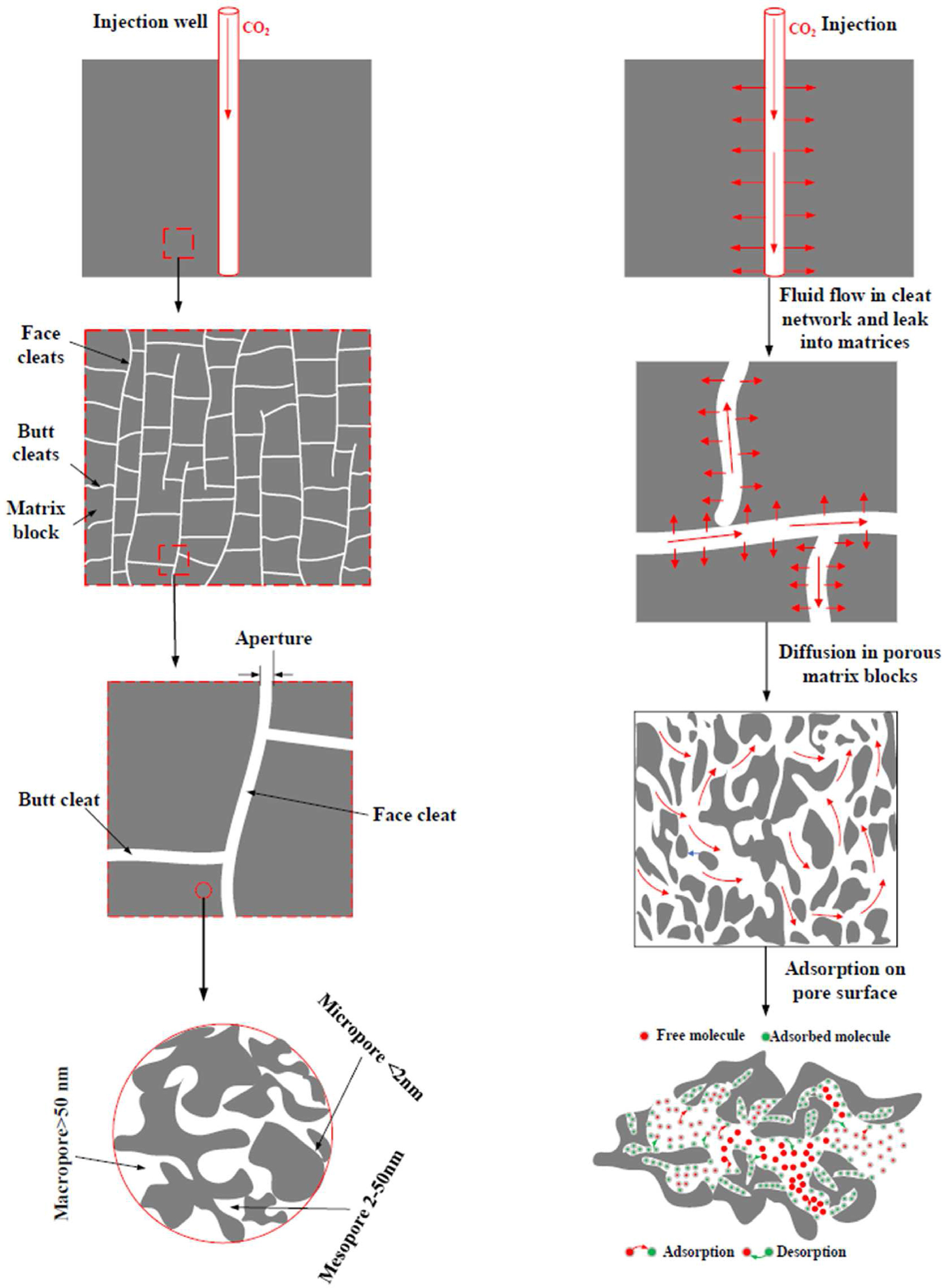JRMGE / Vol 16 / Issue 1
Insights into carbon dioxide sequestration into coal seams through coupled gas flow-adsorption-deformation modelling
Hywel Thomas, Min Chen
Show More
a Geoenvironmental Research Centre, Cardiff School of Engineering, Cardiff University, Queen’s Buildings, The Parade, Newport Road, Cardiff, CF24 3AA, UK
b Key Laboratory of Marine Geology, Tongji University, Shanghai, 200092, China
2024, 16(1): 26-40. doi:10.1016/j.jrmge.2023.11.004
Received: 2023-07-31 / Revised: 2023-11-11 / Accepted: 2023-11-20 / Available online: 2023-12-02
2024, 16(1): 26-40.
doi:10.1016/j.jrmge.2023.11.004
Received: 2023-07-31
Revised: 2023-11-11
Accepted: 2023-11-20
Available online: 2023-12-02
Injecting carbon dioxide (CO2) into coal seams may unlock substantial carbon sequestration potential. Since the coal acts like a carbon filter, it can preferentially absorb significant amounts of CO2. To explore this further, desorption of the adsorbed gas due to pressure drop is investigated in this paper, to achieve an improved understanding of the long-term fate of injected CO2 during post-injection period. This paper presents a dual porosity model coupling gas flow, adsorption and geomechanics for studying coupled processes and effectiveness of CO2 sequestration in coals. A new adsorption−desorption model derived based on thermodynamics is incorporated, particularly, the desorption hysteresis is considered. The reliability of the proposed adsorption-desorption isotherm is examined via validation tests. It is indicated that occurrence of desorption hysteresis is attributed to the adsorption-induced pore deformation. After injection ceases, the injected gas continues to propagate further from the injection well, while the pressure in the vicinity of the injection well experiences a significant drop. Although the adsorbed gas near the well also decreases, this decrease is less compared to that in pressure because of desorption hysteresis. The unceasing spread of CO22 and drops of pressure and adsorbed gas depend on the degree of desorption hysteresis and heterogeneity of coals, which should be considered when designing CO2 sequestration into coal seams.
Keywords: Abstract: Keywords:
Article Data
Author(s) Information
Hywel Thomas

Dr. Hywel Thomas is Professor of Civil Engineering at Cardiff University, UK; the founder Director of the Geoenvironmental Research Centre (GRC) at the University. His research interests lie in the area of “Coupled processes in the Ground”. Current interests are focused on the geoenergy field, with major projects on ground source heat, underground coal gasification, exploitation of unconventional gas and carbon sequestration in coal seams. His academic achievements have been recognised by election as a Fellow of the Royal Society (FRS) in 2003. He is also a Fellow of the Royal Academy of Engineering (FREng) in 2012. He has also been elected a Member of Academia Europaea, the Academy of Europe (MAE) and was recently elected a Foreign Member of the Chinese Academy of Sciences. In 2017 he received a CBE in the New Year's Honours List for “Services to Academic Research and Higher Education”.

